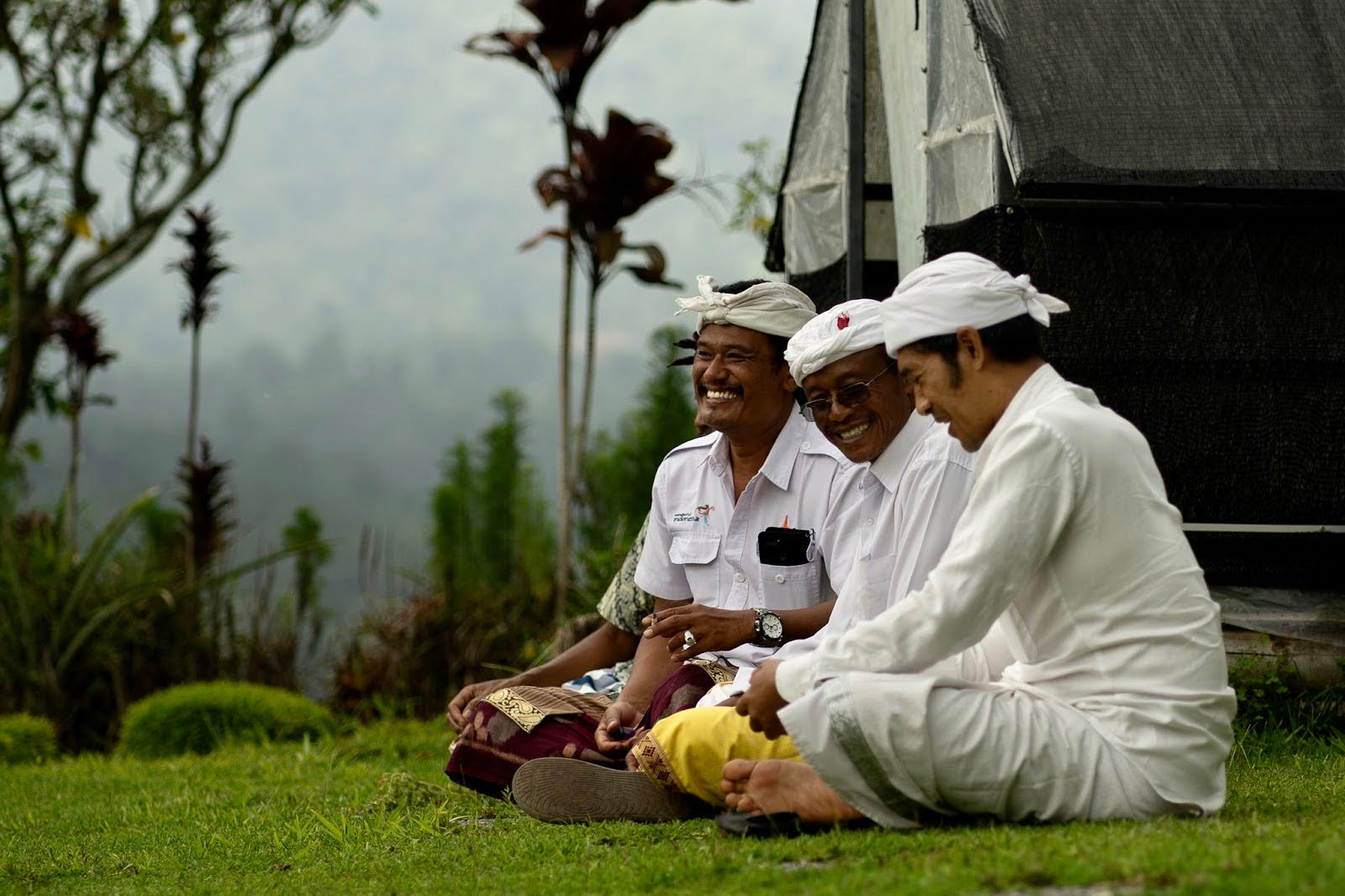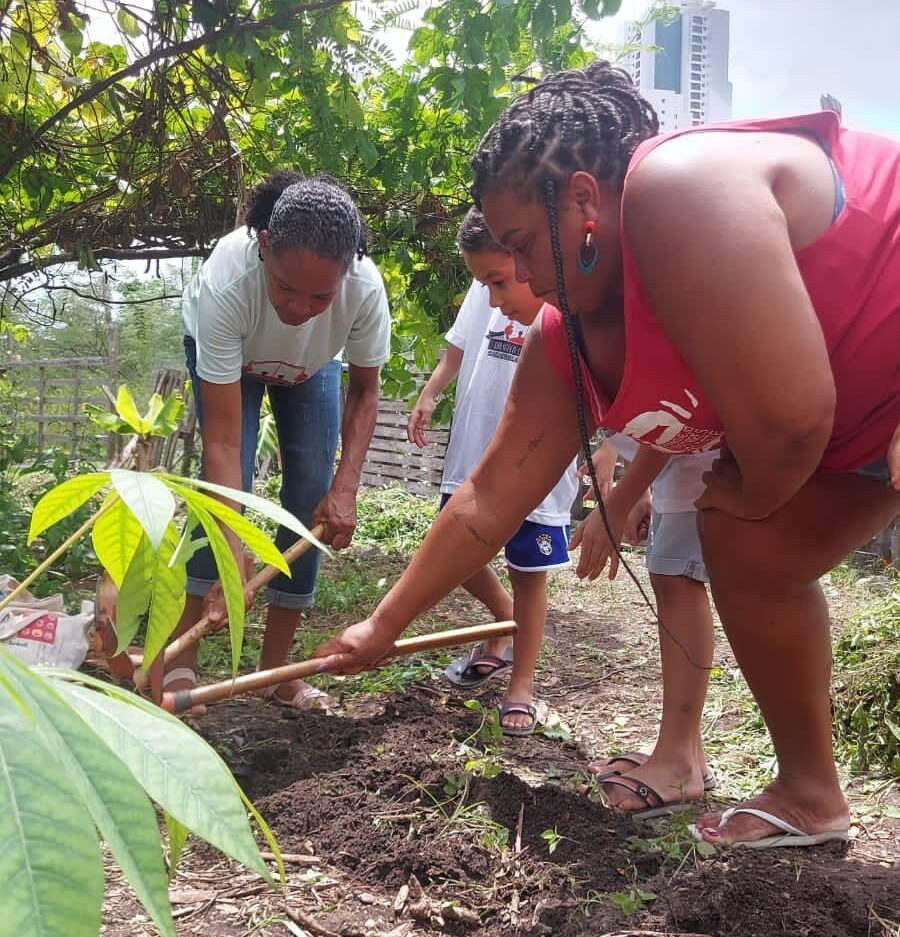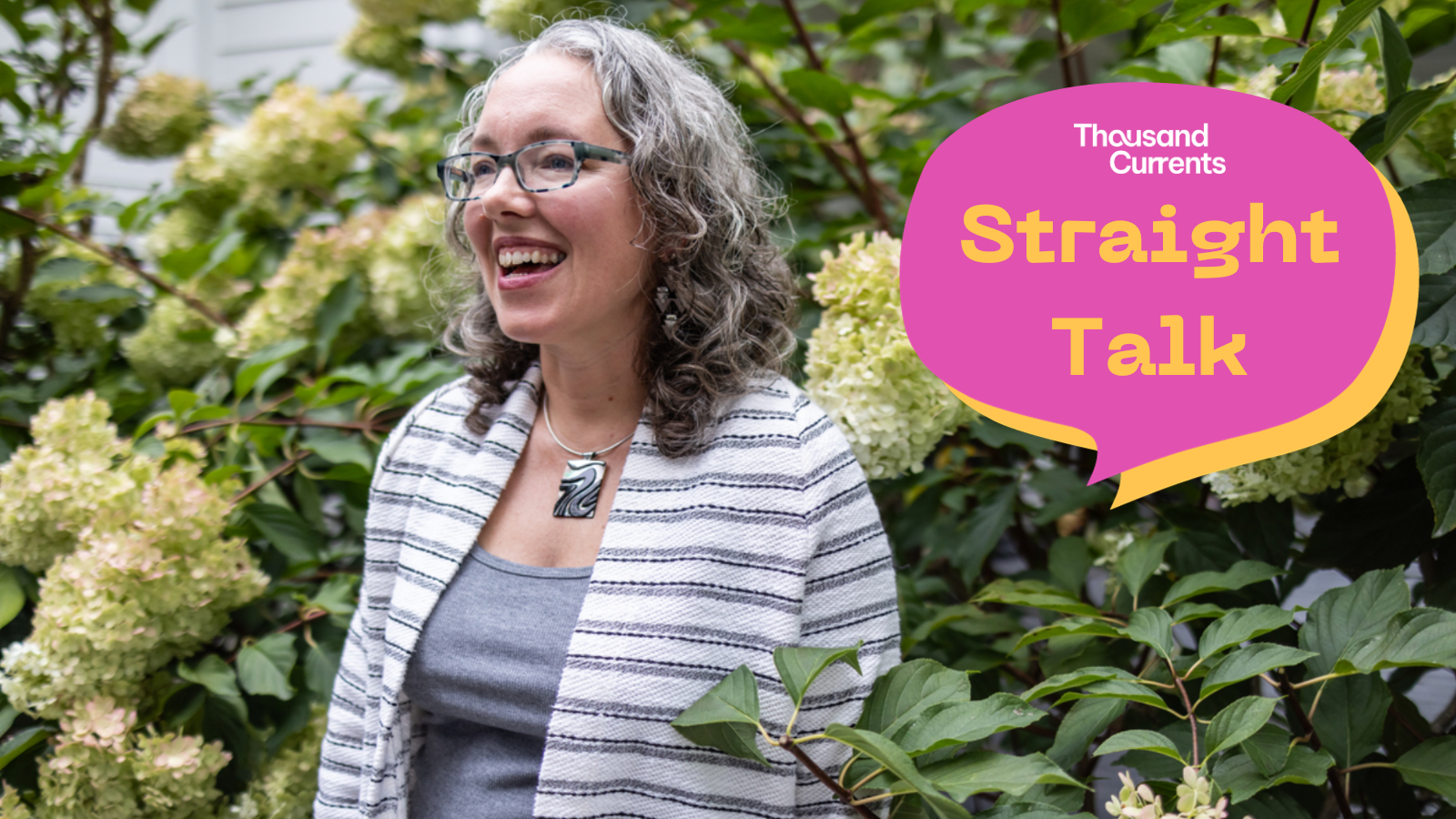Innovative Grassroots Responses to the COVID-19 Pandemic

Across the world, as governments fall short on responses to the COVID pandemic and its connected food and economic crisis, grassroots movements have stepped up to provide frontline care for the most marginalized groups. COVID does not affect everyone equally and is leading to grave injustice and violence towards many. Our partners are responding in ways that are both intersectional and intergenerational, showing solidarity in practical ways. This photo essay highlights stories about how our partners are responding to the ongoing crises in the Asia and Pacific region. These stories show us that grassroots solutions are critical, not just in times of COVID, but in resolving the many crises that face our world – from the climate change to hunger. While our partners are engaging in critical emergency responses, they are also joining the global call for a more meaningful paradigm shift centered on justice and equity.
In The Pacific Islands


A SEEP volunteer is doing a daily check-in with a community member and brining relief materials. Photo courtesy of SEEP
The Pacific Islands were recently hit by a category 5 cyclone called Harold in April 2020 while they were in the middle of a lockdown and dealing with the COVID pandemic. DIVA for Equality, a feminist grassroots-women-led and LBT led network in Fiji immediately responded with critical food aid and other forms of support particularly amongst the most marginalized communities like single mothers, women living with disabilities, LGBTQ, senior citizens, many of whom are facing increased stigma and violence in these times. DIVA’s feminist values and deep grassroots networks meant that even before COVID, their members had already created support structures and safe spaces for LGBTQ community members to collaborate and organize which have played a critical role in responding to this crisis. DIVA has recently initiated a new feminist internet radio show through which it provides timely and accurate information about COVID and how to help. They are also providing mental health support to community members.

The Social Empowerment and Education Programme (SEEP), also in the Pacific Islands, is a social justice network working with Indigenous communities (Itoukei) in Fiji. During the pandemic, SEEP launched the ‘Operation 38-0’ – their own COVID monitoring mission with 38 communities with a target of 0 (zero) cases of COVID-19. SEEPs team has been visiting communities every single day and is in constant phone communication providing support where needed. They are also bringing the latest information about COVID prevention and care, as well as monitoring the situation within these communities.
After cyclone Harold hit some of these communities, crops were destroyed. But the communities’ resilience was evident as the very next day, time was not wasted as they began salvaging and replanting crops as well as clearing the debris.
In India
In India, remote rural areas lack basic health facilities. Older people are especially vulnerable. In many areas, older people are isolated and are facing food and water shortage. Despite this, they are not being prioritized in India’s national response to COVID. Our partner GRAVIS is a community based organization that operates in the Thar Desert region of Rajasthan in India as well as in some other arid areas. GRAVIS has centered healthcare as a key component of its work programs and is offering frontline health services through its own hospitals, awareness campaigns, stepping in where the government response has been weakest- particularly among older people.

A senior member getting a health check-up at a hospital run by GRAVIS. Photo courtesy of GRAVIS
In the south of India, our partner LVC South Asia’s agroecology school Amrita Bhoomi points out that- farmers and rural workers, and particularly women who form the bulk of rural labour are struggling as a result of lockdowns. Given this situation, the Amrita Bhoomi agroecology school, has undertaken a small but remarkable initiative on women’s collective farming. Pictured below is a group of 14 women who are landless farm laborers. They are inaugurating their collective farm of 2 acres. They hope to take all decisions on what to sow, how to manage the land jointly. They hope that this land will give them an opportunity to access food and make an additional income. The women come from the Dalit and the Adivasi indigenous communities, both of which are marginalized groups in India.

A group of 14 women who are landless farm laborers gather to inaugurate their collective farm of 2 acres. Photo courtesy of LVC South India
In Nepal
In Nepal, rural communities are facing dire hunger as a result of the COVID lockdown. Our partner WACN, which has been instrumental in building over 42 women’s credit and other cooperatives has been providing frontline food relief at the community level. WACN members tell us that gender based violence has dramatically increased in these times of lockdown. Women who are usually responsible for the food security of their households are struggling to find supplies. WACN cooperatives have been providing essential food supplies to local communities.

The women from WACNs cooperative called the Indreshwori Nari Chetana Cooperative hand over food supplies to their local food bank. Photo courtesy WACN
In the Philippines

LILAK volunteers hand over supplies to Indigenous women. Photo courtesy of LILAK.
The Philippines has seen one of the most brutal lockdowns so far. Local communities have found it hard to meet basic food needs and are seeing increasing violence and brutality from security forces. Indigenous women in particular have faced significant violence under lock down conditions, from armed groups, from hunger, from lack of support on health services. Purple Action for Indigenous Women’s Rights (LILAK), which supports indigenous women’s struggles initiated a solidarity food and donation drive called ‘BABAYEnihan’ through which they have been distributing both food and cash to indigenous communities during the enhanced community quarantine measures. They also reach indigenous women with hygiene kits and bring attention to the human rights abuses by different armed groups in their communities.
Solidarity with the frontlines
Our grassroots partners are the first responders in their communities. They are going above and beyond their means and limitations to conduct health information campaigns, activate mutual-aid initiatives, and develop plans for a community response.
We at Thousand Currents are committed to going above and beyond with them. In addition to our regular grantmaking, we are sending unrestricted grants to our grassroots partners to meet their urgent needs.
These times are challenging for all of us. Yet, it takes all of us to meet the scale of this crisis. Let us express our solidarity with communities around the world as they face a global pandemic with courage, love, and resolve.
Related Stories



